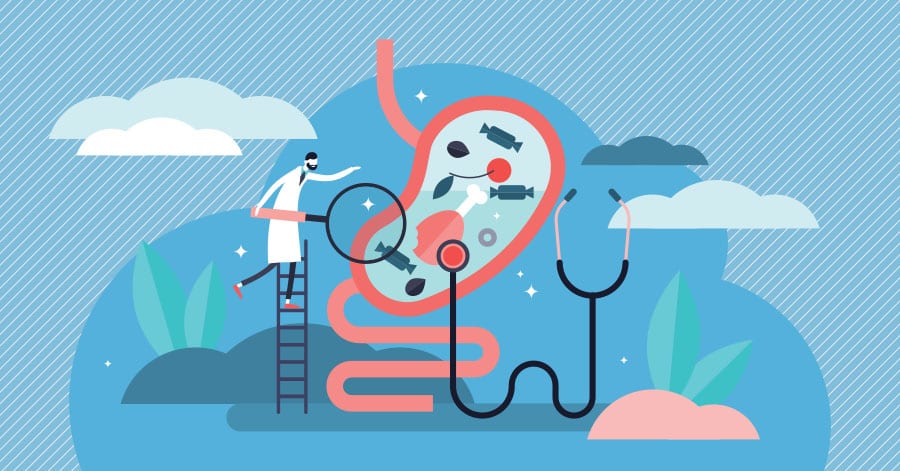
Our intestinal track harbours trillions of microbes (microbiome). These bacteria aid in our immunity and nutrition. 70% of our immune system is in our digestive tract. Alterations of gut microbes (dysbiosis) can cause immune dysregulation leading to many chronic diseases. These may include inflammatory bowel diseases, obesity, cancer, multiple sclerosis, and autism among many others. A small study was conducted on hospitalized COVID-19 patients and the alterations in their gut microbiota, a severe dysbiosis was found even after shedding of the COVID virus was complete.
A common cause of dysbiosis is constipation. According to the National Institute of Health constipation is defined by less than 3 bowel movements per week, stools that are hard or painful to pass, and a feeling of incomplete emptying of the bowels. 16% of adults and 33% of elderly people experience these symptoms. Several studies have documented that chronic constipation “can associated with striking changes in the faecal flora, intestinal permeability, and the systemic immune response. Relief of constipation tends to normalise these findings suggesting that these changes are secondary to, rather than a cause of, constipation” (Khalif, 2005). Increased fluid intake, fiber supplementation, increasing fruits and vegetables, and exercise can all be helpful at decreasing the risks of constipation.
Testing stool samples can reveal many disruptions in gastrointestinal function and bowel dysbiosis. Alterations in beneficial bacteria, dysbiosis bacteria/viruses/fungus, inflammation in the large intestine, permeability of the intestinal tract, and microscopic blood are all analyzed by the laboratory. This allows our naturopaths to set up a treatment plan tailored to the results of the testing. Treatments may include dietary recommendations, oral supplements or, in office procedures such as rectal enema of probiotics.
The health of our microbiome largely influences our overall well-being, from our mental to physical health. New year’s resolution: a makeover for your microbiome.
References:
https://www.sciencedirect.com/science/article/pii/S0016508520347016
https://pubmed.ncbi.nlm.nih.gov/34229419/
https://www.dldjournalonline.com/article/S1590-8658(05)00326-9/fulltext
https://www.niddk.nih.gov/health-information/digestive-diseases/constipation/definition-facts
